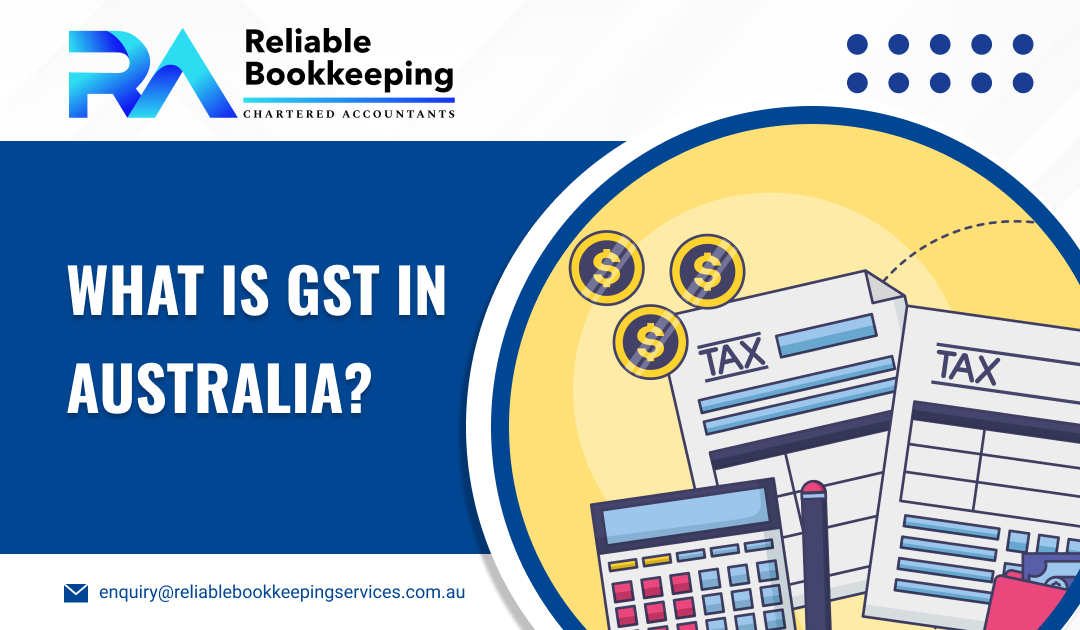The Goods and Services Tax is a tax imposed on most goods and services in Australia. It is also known as a consumption tax because it is charged on things we consume rather than being applied to our income. To learn more about GST, read this blog.
How does GST work in Australia?
GST is a 10% tax imposed on most goods, services and other things consumed or sold in Australia. Things that don’t have GST included are known as GST-free sales. However, its profit isn’t kept by the retailer – instead, it collects on behalf of the Australian Taxation Office (ATO).
When do you need to register for GST?
You need to register for GST:
- When your business’s GST turnover is $75,000 or above
- When you start a new business and expect your company to reach the GST threshold in the first year of work
- If you are already in business and you’ve reached the GST threshold
- If your non-profit organisation’s turnover is $150,000 per year or above
- When you offer limousine or taxi travel for passengers irrespective of your GST turnover – it is applicable for both owner-drivers and if you rent a taxi
- If you want to claim fuel tax credits for your company.
If your business doesn’t meet any of the requirements mentioned above, it would be optional to register for GST. If you want to register, you must stay registered for at least 12 months.
How do I claim GST back when I leave Australia?
Because of the Tourist Refund Scheme (TRS), you are liable to claim GST back when you leave Australia. The TRS can be made at the airport after customs. You need to check the TRS counter. To claim your GST refund, ensure you arrive at the airport on time. GST refund will be deposited to your Australian bank account or you can receive a check issued that you can cash. You may need to submit a few documents to claim GST back, such as:
- Invoices
- Goods
- Passport
- Boarding pass
How to calculate GST from the total amount?
If you want to know the GST amount included in a price, then divide by 11. On the other hand, if you want to know the exact price before GST, then divide by 1.1.
When you can claim GST credits?
You can claim a credit for any GST included in the price of goods and services that you use for your business. This is called GST credit or input tax credit. To claim these credits on your BAS, you must be registered for GST. You are liable to claim GST credits if:
- You are likely to use your purchase only or partly for your business, and the purchase is not related to making input-taxed supplies.
- The purchase price includes GST
- You offer or are subject to offer payment for the good you bought
- You receive a tax invoice from your supplier (for purchases over $82.50).
When you claim GST credits, ensure your suppliers are registered for GST.
When you should not be charged GST
GST applies to:
- imported digital products and services
- imported goods of low value.
You will not be charged GST on these sales if you are registered for GST. You need to provide the supplier with your ABN and state that you are registered for GST. The supplier doesn’t need to provide tax invoices for these sales.
GST and purchases for personal use
If you buy goods or services for personal and business use, you can only claim a GST credit for the portion of the purchase related to your business use. If you later find your actual use distinguished from your intended use, you may have to adjust the amount of GST credits you’ve claimed. If you are a small business, you might be able to account for the personal portion of your business purchases once a year. For this, you must make an annual private apportionment election.
Conclusion
The blog outlines essential aspects related to GST along with information on the calculation of GST, when you can claim GST credits and much more. You can keep everything organised by receiving our Reliable Bookkeeping Services. Additionally, our bookkeeper can help you know if you need to be registered for GST.

